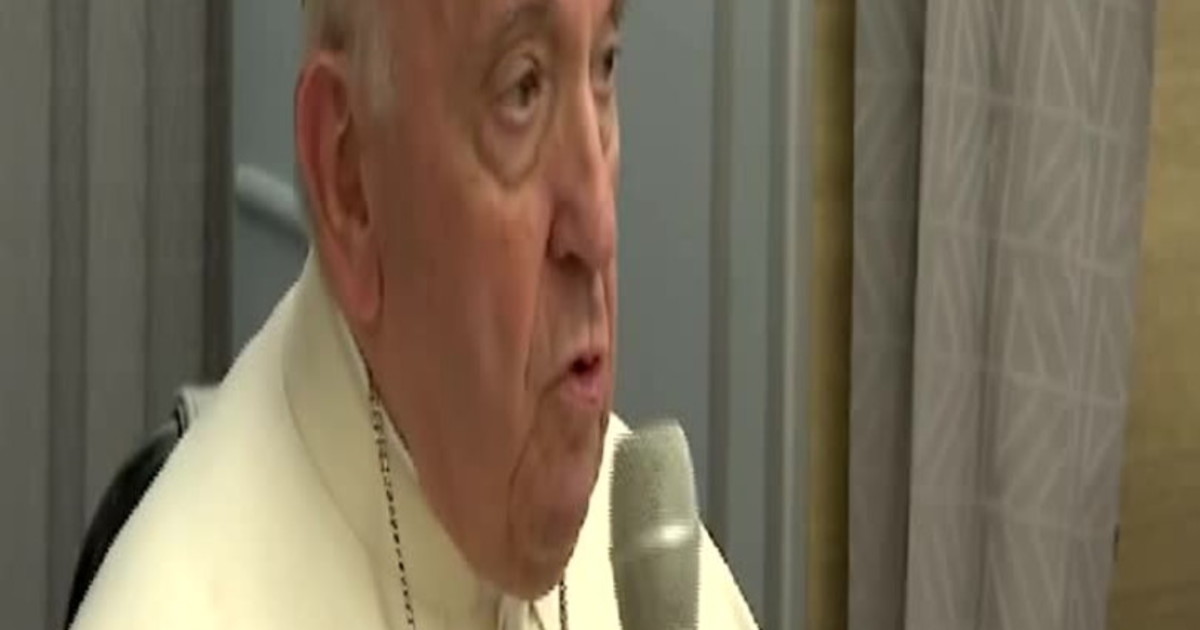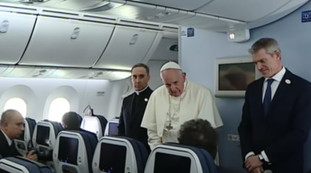
Gianluca Veneziani July 31, 2022
The text is constructed as a perfect architecture, in which each element supports and explains the other, with impeccable logical consistency. Of course, it is legitimate not to be convinced by the book’s thesis and not to believe the scenario that the shocking plan uncovered in this investigation would open up. But the care in form and content, combined with its disruptive message, explains why Codex Ratzinger (Byoblu, p. 342, Euro 22) by Andrea Cionci has become an editorial success, considering that it is published by a small publisher will: more than 5,000 copies sold in just two months, for several days second in the ranking of the Mondadori and Rizzoli bestsellers, still first among the best-selling detective books.
And a growing international interest that will result in it being translated into four languages: English, French, German and Spanish. Despite the various handicaps, many bookstores result in buyers being told “the text is not available”, although it is always available to order.

But it’s understandable. The content of the book is already uncomfortable, the basic thesis of which can be summarized as follows: Ratzinger is still the only pope, Bergoglio is instead the illegitimate pontiff or anti-pope. And this concept is not based on a smoky conspiracy, but on the (amphibological, that is, often ambiguous) interpretation of documents and testimony of Benedict XVI, beginning with the Declaratio of February 11, 2013, the act by which Ratzinger would have formalized his Resignation. He would have, because according to Cionci – who relies on the advice of authoritative theologians and jurists – Benedict XVI. never renounced his role and title in this communication, only the exercise of his functions.
MUNUS AND MINISTRY
Everything revolves around the difference between the terms munus and ministerium, which appear in the decalaratio and both translate as “ministry”. On careful reading of the original text, one discovers that Ratzinger declares that he “renounces the ministry of the bishop of Rome,” that is, “to be pope,” but he never renounces being pope (der munus) and limits himself to say this “My powers are no longer fit to properly exercise the Petrine Munus”.
Therefore, Benedict XVI remains. Pope, even if he renounces his offices. Nor does he become pope emeritus, understood as “retired pope” (the institution does not exist legally), but emeritus in the sense of emeritus, “having the right” to be pope.
This, Cionci warns, will be clarified in two other passages of the Declaratio if the translation is correct. Ratzinger uses the verb vacet to speak not of a “vacant see” indicating that after the conclave the papal see is ready to receive a new pope, but of a “vacant, empty” see so that his rightful one Owner is not present but whoever occupies it becomes the usurper. It is the concept of an “obstructed seat” by internal and external factors (Ratzinger’s enemies in the Vatican are mutiny against his pontificate and hostile powers outside the Church) that invalidate any election of the pope’s putative successors.

This concept is made clear in the final passage of the Declaration, where Ratzinger speaks of convening “a conclave for the election of the new Pope by those to whom he belongs”. Benedict XVI would not use the generic term “cardinals” here because it would only refer to the legitimate cardinals appointed by Ratzinger or Wojtyla before 2013, excluding the illegitimate ones appointed by the new “alleged” pope (Francis). Or, Cionci explains to us, it could allude to the possibility that “the community of believers, the catacomb church, will nominate the new pope, as happened at the origins of Christianity”. With that, Ratzinger would guarantee a real Catholic Church, but now “from the synagogue”. In addition, the message from Benedict XVI. had a deferred effect (he left the papal throne 17 days later) and was not confirmed by a formal resignation written on the day of his departure, February 28: both aspects would contribute to his supposed resignation from the pontificate.
HIDDEN TRUTH
Fanta-religious thesis? It’s legitimate to think that way. But Cionci asserts the goodness of the idea, relying on Benedict XVI’s communications, written and uttered in a language he defines as the “Ratzinger code,” made up of unspoken and barely veiled truths, but never lies . Benedict XVI is said to have come up with an ingenious “joke”, despite a lot of resistance and misunderstandings. Hence the use of some more or less explicit rhetorical tricks: for example, saying that “the pope is one” without ever specifying which one, or writing, “no pope has resigned in the last thousand years and was in the first millennium a pope exception”: a reference to the two popes of the first millennium who were expelled by anti-popes.
We remain doubtful about the interpretation of some messages (see the one in which we speak explicitly of the “end of the pontificate”), about the fact that no cardinal has noticed this papal plan and its effectiveness. Assuming this to be true, how many chances are there that after the death of Benedict XVI. Cardinals loyal to him swell a “newly established” church proclaiming his successor? We fear close. So what’s the point of the Ratzinger Code?
But it’s also fair to ask why nobody ever denied the author, not even Benedict XVI when Cionci wrote him a letter…

